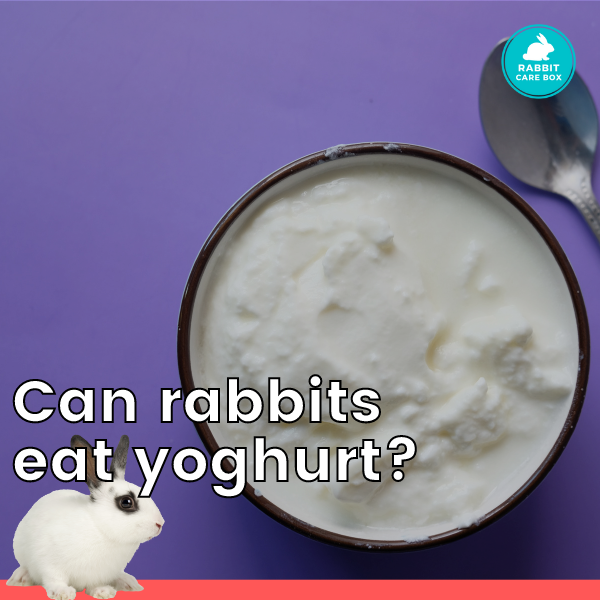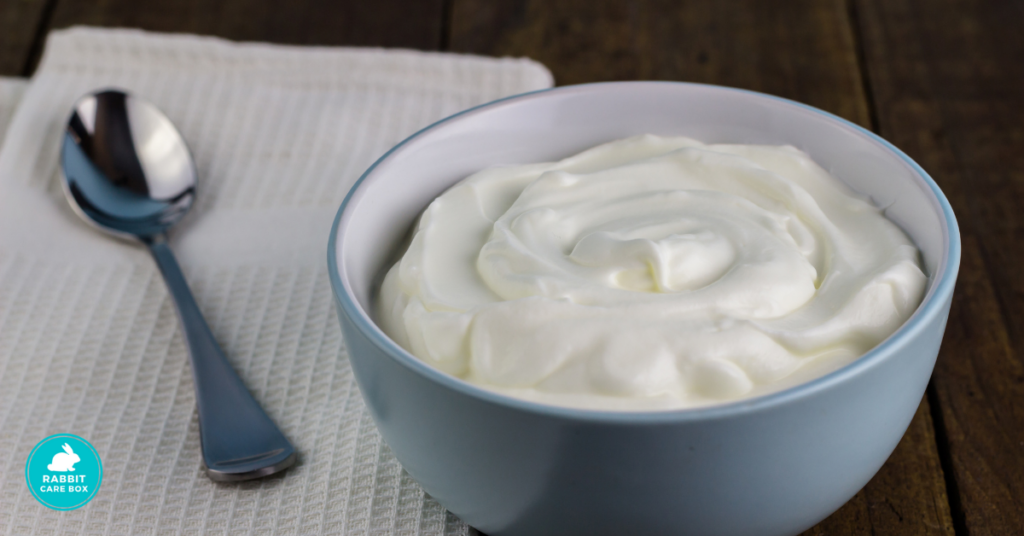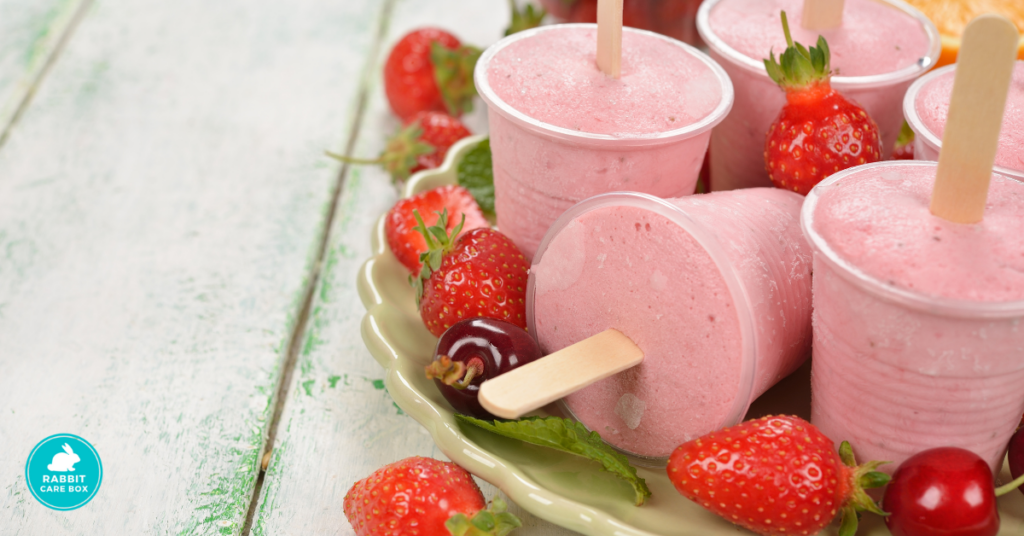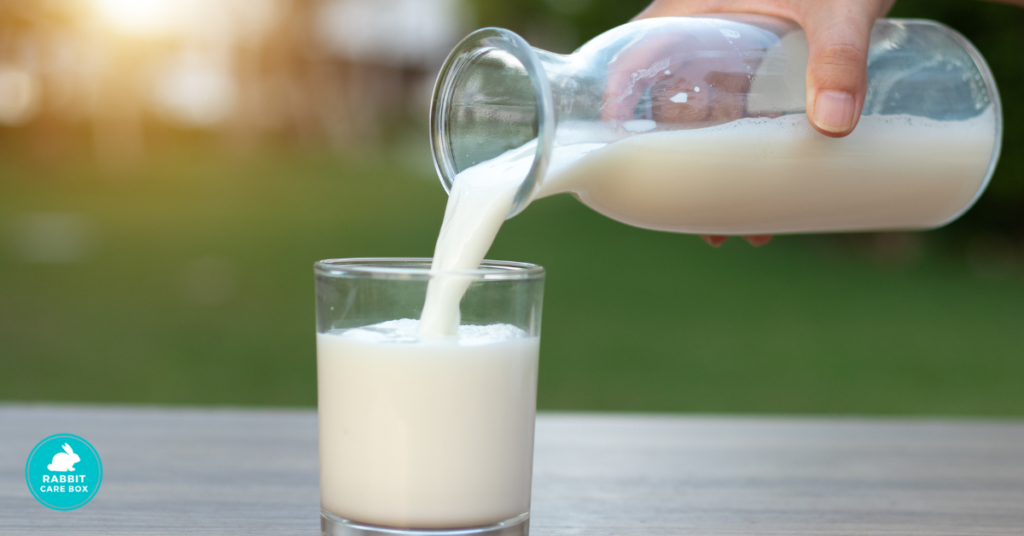Page Contents
No, giving yoghurt to a healthy rabbit is not necessary. It’s not on the list of acceptable rabbit foods. Even though even worse yoghurt drops may be available at pet stores, your rabbit’s stomach will never be happy with this feeding option. There is a strong chance that they will enjoy the flavour, but this is only out of curiosity. It can make him extremely ill very quickly.

The rabbit’s gastrointestinal system consists of the stomach, small and large intestines, and the cecum. Both the small and large intestines, as well as the stomach, have acidity and aerobic conditions. Therefore, the bacteria from dairy products called Lactobacillus will pass through them. However, the cecum is where the issue is since there are no aerobic conditions there. Therefore, it prevents Lactobacillus from passing through.
You should keep the following three points in mind the next time you wish to offer your rabbit dairy products: Rabbits may experience gastrointestinal stasis or have messy faeces due to their inability to vomit. Dairy products may also produce bloating or gas in rabbits.
Your rabbit will struggle because of these problems.
Although they can drink diluted yoghurt for health reasons, rabbits aren’t technically lactose intolerant. However, like people, some rabbits will lose their capacity to digest milk enzymes properly as they age since the gut bacteria is gradually eliminated.
Is Yogurt covered Raisin good for rabbits?
You might question if yoghurt-covered raisins benefit your bunny if they are safe for rabbits. Sadly, this is not the case. Raisins will not get healthier by yoghurt addition; instead, they will become less healthful.
Since rabbits are herbivores, yoghurt is one example of an animal product that might upset someone’s delicate intestinal flora. These lipids and proteins are too complicated to process for a rabbit’s digestive tract.
You may have seen yoghurt drops in pet shops that are promoted as suitable for rabbits. Essentially, this is a particular therapy. In rare instances, yoghurt may help rabbits with digestive problems since it has its own bacterial culture. But yoghurt has to be diluted and administered sparingly.
Can rabbits eat Greek Yogurt?

Don’t let the bunnies eat Greek yoghurt. Greek yoghurt, according to a study, may contribute to enterotoxemia deaths. This is an intestinal bacterial overgrowth that is poisonous.
Therefore, stay away from Greek yoghurt’s unsweetened and sweetened kinds. This can cause an imbalance in the bacterial population of the cecum. In addition, because the added sugar is either moved to the cecum or turned to fat, this might induce GI stasis and other issues.
You’re feeding your rabbit too much sugar through greek yoghurt, which they don’t need. Choose nutritious substitutes instead that won’t hurt your bunnies.
Rabbits can tolerate lactose. However, some rabbits lose the capacity to digest milk enzymes with age, much like humans. This happens as a result of the slow destruction of their intestinal flora.
The stomach, large and small intestines, and the cecum make up the rabbit’s digestive system. The stomach, as well as the small and large intestines, are acidic and aerobic organs.
They will let the bacteria Lactobacillus, which may be present in dairy products, pass through. The problem, though, lies in the cecum, which has exclusively anaerobic conditions. This is a barrier that Lactobacillus is unable to overcome.
Can bunnies eat frozen Yogurt?

Yoghurt and other ingredients are used to make frozen yoghurt, a dairy-based delicacy. It’s frequently mistaken for ice cream. However, it tastes slightly different and has less fat than ice cream.
Sadly, rabbits are unable to consume frozen yoghurt. Therefore, they are unable to eat any dairy products. Since they cannot digest dairy products, rabbits become pretty ill when consuming them.
If they do ingest them, seek emergency veterinary attention. As a result, bunnies shouldn’t be fed any frozen yoghurt.
Is Yogurt good for rabbits?
Although feeding rabbits huge quantities of yoghurt won’t make them sick, it may cause GI stasis and diarrhoea since rabbits don’t tolerate dairy products well.
The main ingredients in yoghurt are milk and a flavouring fruit.
You may feed fruits to rabbits without issue. However, dairy items are more likely to cause your rabbit stomach issues.
Bring your rabbit to a veterinarian immediately if you detect any changes in the size or consistency of its stools.
Can bunnies eat yoghurt drops?
Even if you may still get yoghurt drops at pet shops, using them is not advised. You should never give yoghurt drops to rabbits since you would never give them sweets, sugar, chocolate, or nuts. In yoghurt drops, sugar is the first component. But, of course, it also includes dairy and fat in addition to sugar.
Can baby rabbits eat Yogurt?
No, only baby rabbits can consume milk. Except for milk, they won’t be able to digest yoghurt or other dairy products. So, despite young bunnies handling lactose, Use KMR (Kitten Milk Replacer) or goat’s milk, which you can get at pet stores or occasionally even a nearby vet’s office, in place of cow’s milk.
Please make sure the goat’s milk is warm before giving it. The temperature in the room is excellent. It’s also a good idea to incorporate a tiny bit of acidophilus into the mixture to support healthy gut flora. Remember that rabbits should only be given KMR (Kitten Milk Replacer). Rabbits should not be given Esbilac or any other puppy recipes.
Can rabbits have milk?

Giving milk to rabbits is not a good idea. Due to their lactose intolerance, adult rabbits’ digestive systems do not react well to milk products. Likewise, you shouldn’t give cow’s milk to baby bunnies since it differs significantly from their moms’ milk.
Although milk is often considered a healthful beverage for humans, milk can be pretty hazardous for a rabbit. This is because the nutritional requirements of a young cow are supported by cow’s milk, which generally differs significantly from the milk of other animals in many ways. As a result, animals like rabbits, whose milk has a completely different nutritional composition from that of cows, cannot benefit nutritionally from drinking cow milk.
When they reach adulthood, rabbits become lactose intolerant like many other animals. As a result, they cannot effectively digest the primary protein found in milk and other dairy products. In addition, regular use of dairy products increases the risk of gastrointestinal (GI) stasis and other gut issues in rabbits.